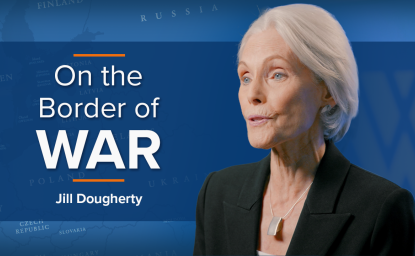Georgetown University Senior Fellow Margot Badran has written extensively on feminism within Muslim societies. As a Wilson Center fellow, she continues to do so, exploring how a particular mode of feminism called "Islamic feminism" that emerged in the 1990s contributes to the promotion of human rights and democracy around the world.
"Gender equality and social justice are core ideals of Islamic feminism," Badran explained. She noted the discourse of Islamic feminism is grounded in re-readings of the Qur'an and other religious sources. Understanding Islam as an egalitarian religion and not as an intrinsically patriarchal religion, she said, is important to Muslims the world over wherever they live in older Muslim majority or minority societies in Africa and Asia, or in the newer Muslim communities in the West.
Awareness of an egalitarian Islam is also important for others, she said. The call for the idea and practice of equality of gender, race, and class, and of justice toward individuals and groups that Islamic feminism espouses is indispensable for living together in positive ways, she said.
"For Muslims in the West, Islamic feminism provides an understanding of equality expressed in the language of Islam rather than simply as a generic ideal that many perceive as alien," Badran said, "something quite understandable when an insistently patriarchal version of Islam continues to be imposed. An egalitarian Islam helps Muslim men and women in their everyday lives, in their families and religious communities, as well as in interactions with members of the society at large who may or may not be co-religionists."
For Muslims in African and Asian societies undergoing dynamic and often stressful change, Islamic feminism offers fresh inspiration. In the latter decades of the 20th century, with the rise and spread of political Islam and its persistent patriarchal tones, "Islamic feminism has a vital, if perilous role, to play for Muslims and indeed for societies in general," she said.
If citizens are not equal, including gender equal within their own religious communities, Badran said, and if societies do not uphold gender equality and social justice, this leaves democracy adrift and human rights endangered. People understand this and are acting on it.
For more than three decades, Badran constantly has been moving between the West and Muslim societies in Africa and Asia and has participated in various feminist movements, whether second-wave feminism in the United States or in Egypt, a country whose first feminism wave she has extensively researched and written about.
While at the Wilson Center, Badran is probing how Islamic feminist discourse and activism can enhance, and to a certain extent has already enhanced, the enjoyment of human rights and practice of democracy in various societies around the world. She is aware of the need for careful contextualizing and will provide concrete examples of successes and stalemates. She also will flag the conundrums that we all face in our interlinked lives around the globe and suggest strategies to deal with them.


